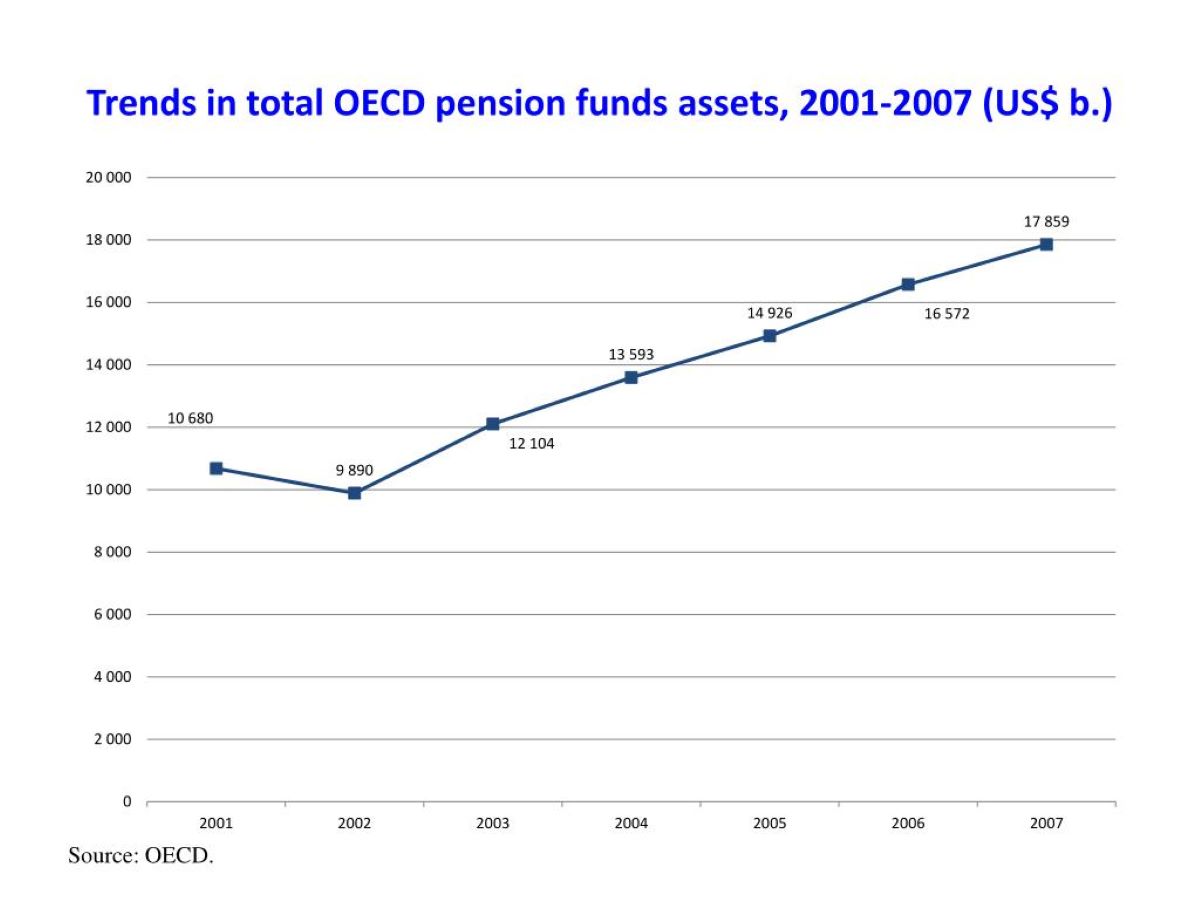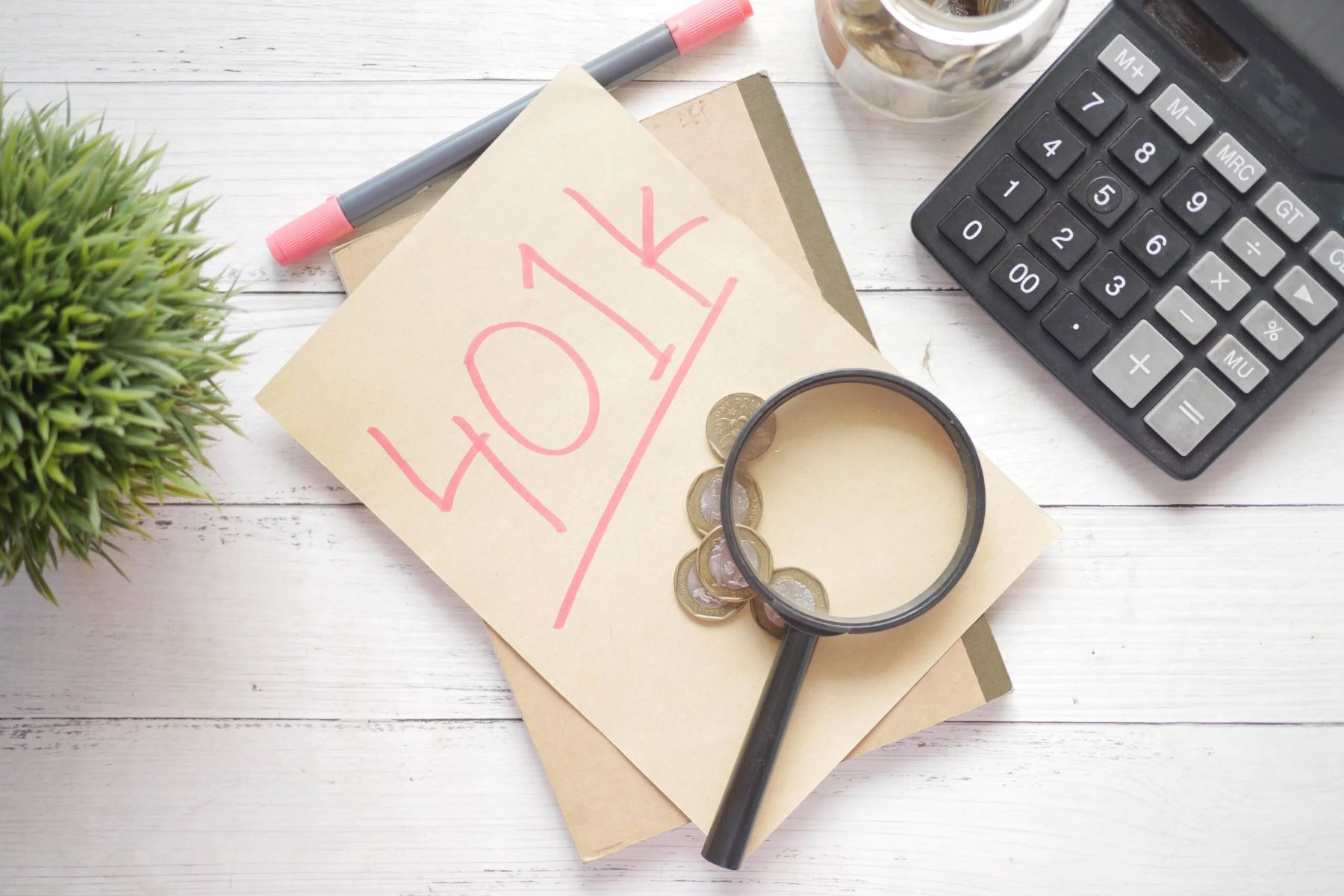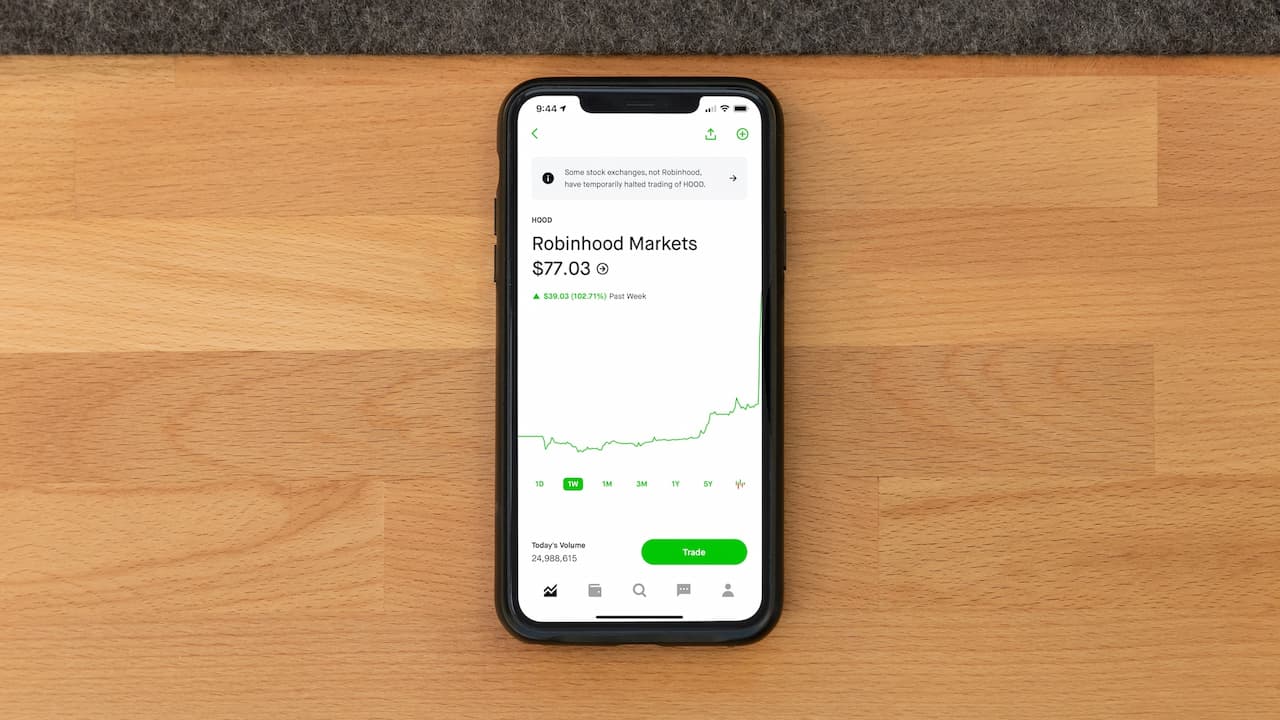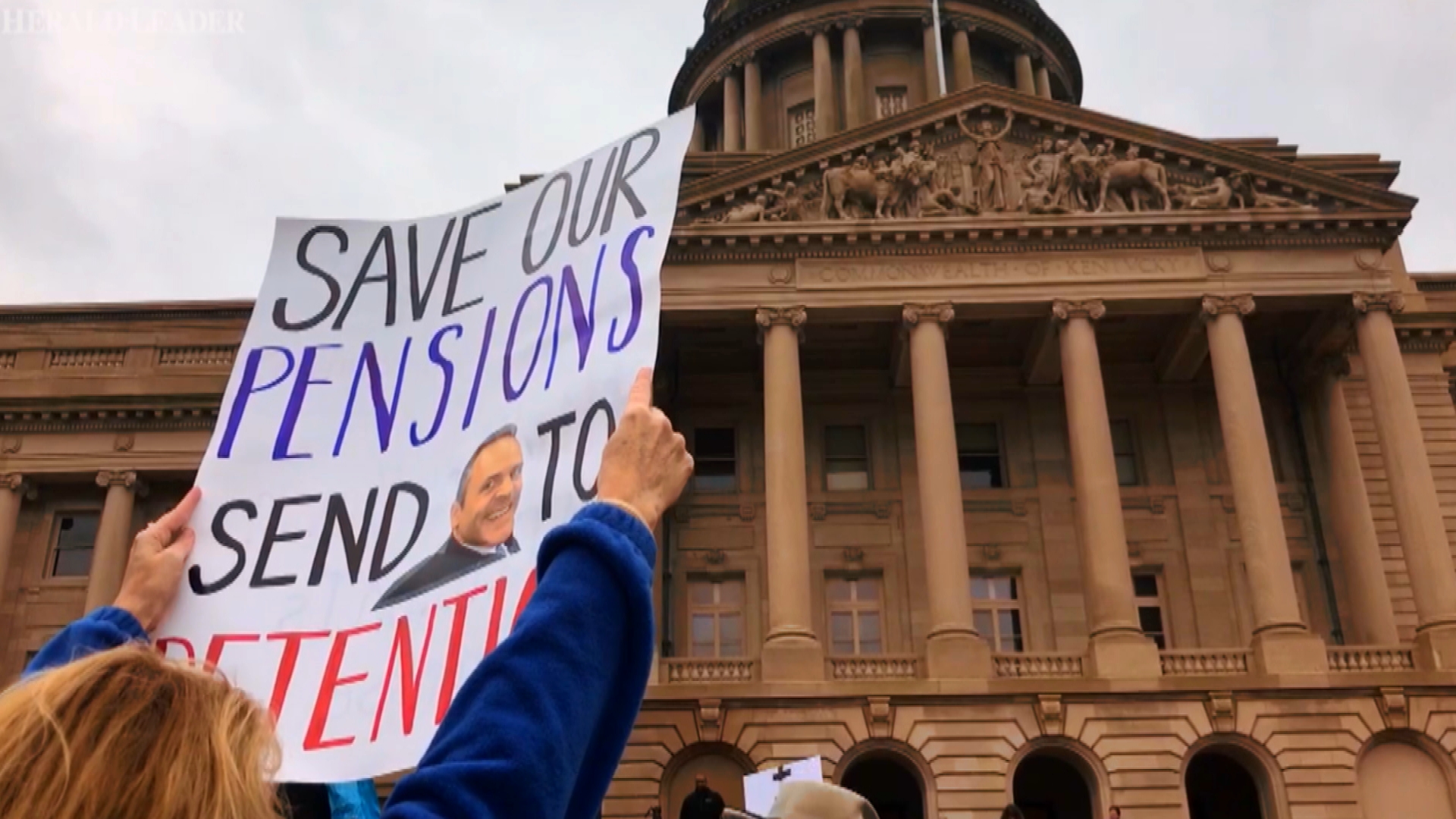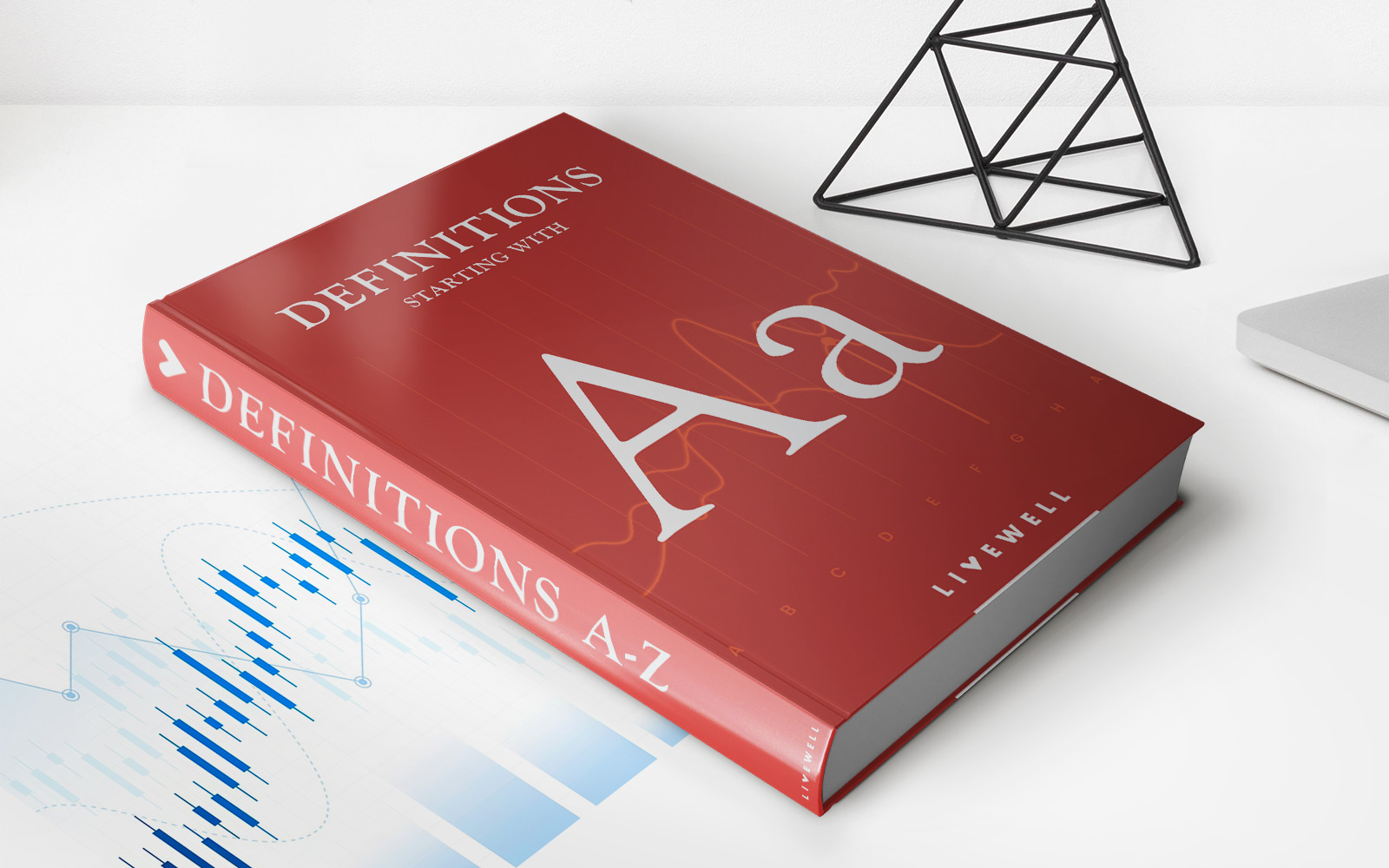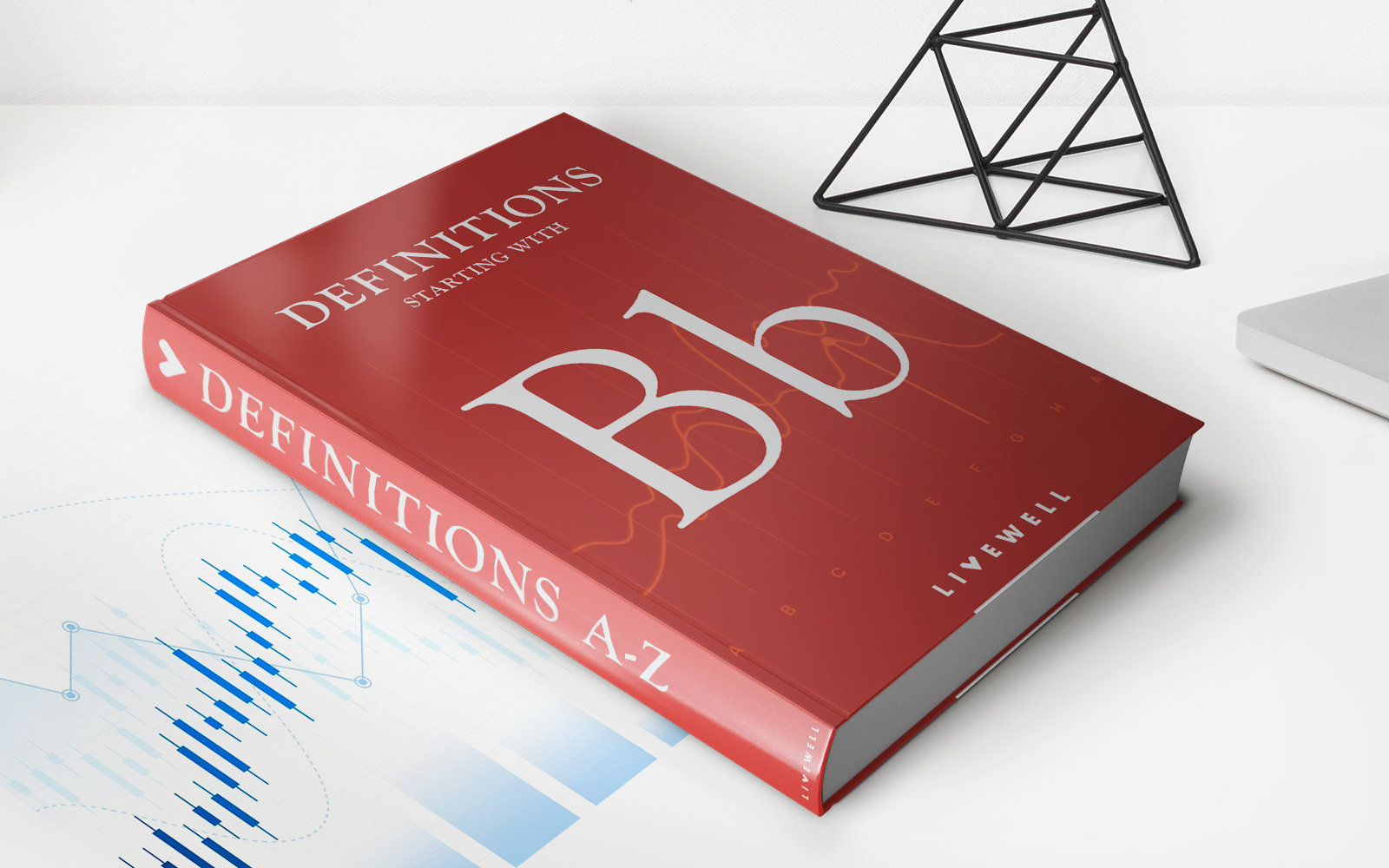Home>Finance>What Happens To Pension If Company Goes Bankrupt


Finance
What Happens To Pension If Company Goes Bankrupt
Published: November 27, 2023
Discover what happens to your pension if your company goes bankrupt. Gain insights into the financial implications and learn how to safeguard your future.#Finance
(Many of the links in this article redirect to a specific reviewed product. Your purchase of these products through affiliate links helps to generate commission for LiveWell, at no extra cost. Learn more)
Table of Contents
Introduction
Welcome to our comprehensive guide on what happens to pensions when a company goes bankrupt. In today’s volatile economic climate, company bankruptcies are unfortunate but not uncommon occurrences. They can disrupt the financial stability of employees and retirees, particularly in relation to their pension plans.
Pensions are an essential component of retirement planning, providing individuals with a source of income during their golden years. However, when a company goes bankrupt, the future of these funds may become uncertain, leading to worry and confusion for pensioners. In this article, we will delve into the impact of company bankruptcy on pensions and explore the available options for pensioners in such situations.
Understanding the intricacies of pensions and how they are affected by a company’s financial distress is crucial for anyone relying on these plans to sustain their livelihood in retirement. We will discuss the necessary steps that both pensioners and employees can take in the face of company bankruptcy, as well as highlight the existing pension protection measures in place.
This article aims to provide clarity on the complex issues surrounding pensions and bankruptcy, offering guidance for individuals who find themselves in this unfortunate predicament. Whether you are currently employed by a company or a retiree receiving pension benefits, understanding what happens to your pension when a company goes bankrupt is essential for securing your financial future.
Now, let’s delve into the world of pensions and uncover the implications of company bankruptcy, as well as the potential solutions and protective measures available to pensioners.
Understanding Pensions
Before exploring the impact of company bankruptcy on pensions, it is essential to have a solid understanding of what pensions entail. A pension is a retirement plan that is aimed at providing individuals with a steady income stream during their retirement years.
There are various types of pensions, but the most common ones are defined benefit and defined contribution pensions. In a defined benefit pension, the amount of income you will receive in retirement is predetermined based on factors such as your salary and the number of years you have been a member of the pension scheme. This means that you are entitled to a specific monthly payment for the rest of your life once you reach the retirement age.
On the other hand, a defined contribution pension operates differently. In this type of plan, both you and your employer contribute to a pension fund, which is then invested in various assets such as stocks and bonds. The value of the pension fund determines the amount of income you will have in retirement. Unlike a defined benefit pension, the income you receive from a defined contribution pension can vary depending on the performance of the investments.
It is important to note that pension funds are typically held separately from the company’s assets and are managed by professional fund managers. This separation is designed to protect the pension funds in the event of the company encountering financial difficulties or going bankrupt.
Pensions are regulated by government bodies and are subject to specific laws and regulations to ensure that pensioners are adequately protected. These regulations vary from country to country, but their primary purpose is to safeguard pension funds and ensure that retirees receive the benefits they are entitled to.
Now that we have a clear understanding of pensions, let’s explore how the bankruptcy of a company can impact these retirement plans and what measures are in place to protect pensioners in such situations.
The Impact of Company Bankruptcy
When a company goes bankrupt, it can have significant repercussions for the pension plans of its employees and retirees. The impact can vary depending on the type of pension scheme and the specific circumstances surrounding the bankruptcy. Here are some key ways in which company bankruptcy can affect pensions:
- Underfunded Pension Plans: In certain cases, a company may have an underfunded pension plan, meaning that the assets in the pension fund are insufficient to cover the promised pension benefits. If the company goes bankrupt, it may not have the financial means to fulfill its pension obligations, potentially leading to reduced pension payments or even a complete loss of benefits for retirees.
- Pension Scheme Freezes: When a company faces financial distress, it may opt to freeze its pension scheme. This means that employees and retirees will stop accruing additional pension benefits, and their current pension funds may be inaccessible or limited. The decision to freeze a pension scheme is often made to preserve the remaining assets for existing pensioners.
- Changes to Pension Contributions: In some cases, a company’s bankruptcy may result in changes to pension contributions. Employees who are still working for the company may see a reduction or suspension of their employer contributions, impacting their retirement savings. Retirees who receive a fixed pension amount may also experience changes if the company can no longer meet its financial obligations.
- Pension Scheme Takeover: In certain jurisdictions, there are regulations in place that facilitate the takeover of underfunded or insolvent pension schemes by a government agency or a designated pension protection fund. This allows for the continuation of pension payments to retirees, albeit potentially at reduced levels.
- Uncertainty and Stress: Company bankruptcy can create a sense of uncertainty and stress for pensioners. The fear of losing out on hard-earned retirement benefits can lead to anxiety and financial insecurity. It is essential for pensioners to stay informed and take necessary steps to protect their interests during this challenging period.
It is important to keep in mind that the impact of company bankruptcy on pensions can vary widely depending on several factors, including the financial health of the company, the type of pension scheme, and the regulatory framework in place. In the next section, we will discuss the options available to pensioners when faced with a company bankruptcy.
Options for Pensioners
When a company goes bankrupt and the pension plan is impacted, pensioners may feel helpless and uncertain about their financial future. However, there are several options available to pensioners to navigate through this challenging situation:
- Explore Pension Protection Measures: It is vital to understand the pension protection measures in place to safeguard your retirement benefits. Research the laws and regulations specific to your country or jurisdiction, as they often provide certain guarantees or compensation for pensioners in case of company bankruptcy.
- Engage with Pension Administrators: Contact the administrators or trustees of your pension scheme to gather information about the impact of the company’s bankruptcy on your pension. They will be able to provide clarity on the available options and the steps you can take to protect your pension benefits.
- Consider Pension Transfer: Depending on the circumstances and regulations of your pension scheme, it may be possible to transfer your pension to another scheme or provider. This can help safeguard your retirement savings and ensure that they are not affected by the company’s bankruptcy.
- Seek Legal Advice: If you believe that your pension rights have been unjustly affected due to the company’s bankruptcy, it may be beneficial to seek legal advice from a pension lawyer or specialist. They can help assess your situation and determine if any legal action can be taken to protect your pension benefits.
- Stay Informed and Stay Connected: Keep yourself updated on the status of the company’s bankruptcy proceedings and any developments that may impact your pension. Stay connected with fellow pensioners and employee groups to share information and support each other during this challenging time.
Each pensioner’s situation is unique, and the options available may differ depending on factors such as the type of pension scheme, local regulations, and the financial circumstances of the employer. It is crucial to take proactive steps and seek professional advice to ensure the best outcome for your pension benefits.
In the next section, we will discuss the pension protection measures that are in place to safeguard pensioners in the event of a company’s bankruptcy.
Pension Protection Measures
Recognizing the importance of safeguarding pension benefits, many countries have implemented pension protection measures to provide a safety net for pensioners in the event of a company’s bankruptcy. These measures differ from country to country, but their objective is to mitigate the financial impact on retirees. Here are some common pension protection measures:
- Pension Protection Funds: Some countries have established pension protection funds aimed at ensuring that pensioners receive at least a portion of their promised benefits in the event of a company’s insolvency. These funds are typically funded by levies on pension schemes or contributions from employers.
- Pension Benefit Guaranty Corporation (PBGC): In the United States, eligible private sector pension plans are insured by the PBGC. If a company’s pension plan terminates due to bankruptcy, the PBGC steps in to pay benefits to retirees, subject to certain limits and caps specified by the program.
- Government Compensation Schemes: Some countries have government-backed compensation schemes that provide financial assistance to pensioners when a company’s pension scheme fails or becomes insolvent.
- Priority of Pension Claims: In certain jurisdictions, pension claims are given priority over other types of creditor claims in bankruptcy proceedings. This ensures that pensioners receive their benefits before other creditors are paid.
- Regulatory Oversight and Reporting: Governments often have regulatory bodies that oversee and regulate pension schemes. These organizations monitor the financial health of pension funds, impose requirements on pension administrators, and enforce compliance to protect pensioners’ interests.
It is important for pensioners to familiarize themselves with the specific pension protection measures in their country or jurisdiction. This information can provide assurance and help you understand the measures in place to protect your pension in case of company bankruptcy.
While these pension protection measures offer some level of security, it is still crucial for pensioners to be proactive and informed. Stay up to date with any changes in pension regulations and seek professional advice to ensure that you are taking full advantage of the available protection measures.
In the next section, we will outline the steps that pensioners can take if their company goes bankrupt, helping them navigate the challenging circumstances.
Steps to Take if Your Company Goes Bankrupt
Discovering that your company is going bankrupt can be a daunting and overwhelming experience, but it’s important to take certain steps to protect your pension and navigate through this challenging situation. Here are some essential steps to consider:
- Contact the Pension Administrator: Reach out to the pension administrator or trustee to understand how the company’s bankruptcy will affect your pension. They will have the most accurate information regarding the status of the pension plan and any potential changes or measures in place.
- Stay Informed: Keep yourself updated on the bankruptcy proceedings of the company. This includes following any court filings, attending meetings or hearings related to the bankruptcy, and staying informed about developments that may affect your pension and retirement benefits.
- Seek Legal Advice: Consider consulting a pension lawyer or specialist who can provide guidance on your rights and options, particularly if you believe that your pension benefits are unjustly affected by the company’s bankruptcy. They can help you navigate through complex legal matters and ensure that your interests are protected.
- Explore Pension Transfer Options: Investigate whether it is possible to transfer your pension to another scheme or provider. Depending on the regulations and circumstances, transferring your pension may help protect your retirement savings from the impact of the company’s bankruptcy.
- Utilize Government Resources: Research and tap into any government resources or programs that provide assistance to pensioners affected by company bankruptcy. This may include pension protection funds, compensation schemes, or other forms of financial support available to retirees.
- Stay Connected with Other Pensioners: Connect with fellow pensioners and employee groups to share information, support one another, and stay updated on any collective efforts to protect pension benefits. By creating a united front, you can amplify your voices and advocate for your rights and interests.
- Review Personal Finances: Assess your personal financial situation and make any necessary adjustments in light of the company’s bankruptcy. This may include reevaluating your retirement plan, adjusting your budget, and seeking professional financial advice to ensure your long-term financial well-being.
Remember that each individual’s situation is unique, and the appropriate steps to take will depend on various factors, such as the type of pension scheme, local regulations, and the specific circumstances of the company’s bankruptcy. By taking proactive measures and seeking expert advice, you can protect your pension and navigate through this challenging period with greater confidence and security.
Now, let’s conclude this comprehensive guide on what happens to pensions when a company goes bankrupt.
Conclusion
Understanding what happens to pensions when a company goes bankrupt is crucial for individuals relying on these retirement plans to maintain financial stability in their golden years. The impact of company bankruptcy on pensions can be significant, ranging from reduced pension payments to the complete loss of benefits. However, there are options and protective measures in place to mitigate the financial impact and safeguard pensioners’ interests.
Throughout this guide, we have explored the intricacies of pensions, the implications of company bankruptcy, and the available measures to protect pension benefits. We have discussed the different types of pensions, the potential impact of company bankruptcy, and the options for pensioners to consider.
It is essential for pensioners to stay informed, engage with pension administrators, and seek professional advice when facing a company’s bankruptcy. By understanding the pension protection measures in your country or jurisdiction, you can take necessary steps to safeguard your retirement savings.
Remember to explore options such as pension transfers, stay connected with other pensioners, and utilize government resources that may be available to support you during this challenging time. Consulting a pension lawyer or specialist can also provide valuable insights and guidance in protecting your pension rights.
Ultimately, taking proactive measures, staying informed, and seeking professional advice are crucial in navigating the impact of company bankruptcy on your pension. By prioritizing your financial well-being and exploring the available options, you can work towards securing your retirement and mitigating the effects of company bankruptcy on your pension benefits.
As always, it is important to consult with a financial advisor or pension specialist who can provide personalized advice based on your unique circumstances. They can guide you through the process and help you make well-informed decisions to protect your future.
While the challenges of company bankruptcy are daunting, remember that you are not alone. By understanding your rights, exploring available options, and seeking support from fellow pensioners and professionals, you can navigate through this difficult period with greater confidence and resilience.
Take control of your financial future and protect your pension, even in the face of adversity.

